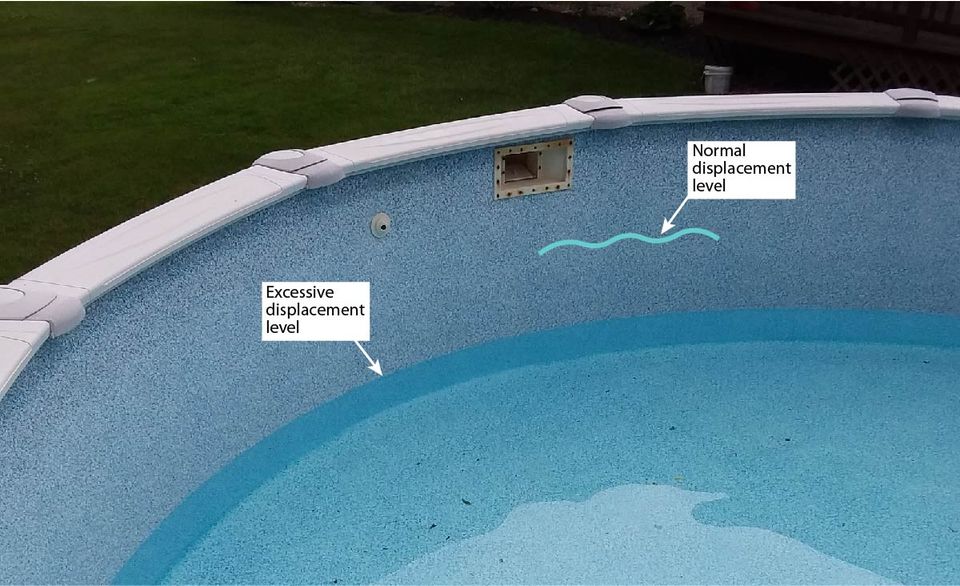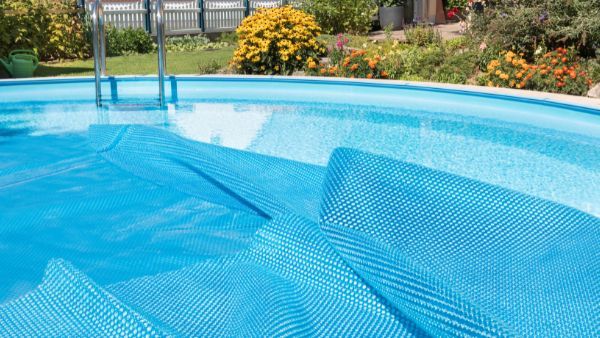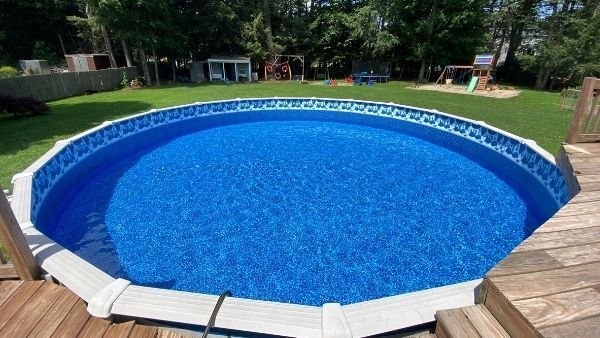Low Water Level During Above Ground Pool Opening - Why and How to Prevent It
If you are a new pool owner in New England, either you or a pool professional closed your above ground pool for the coldest season of the year.
All winter long you stare at the hibernating construction of where your glistening blue water used to be last summer.
Spring comes around, and you can’t wait to take off the pool cover.
But wait, the water level is really low. While your first reaction might be to panic and look for a leak, it might not be as bad as you think.
Here’s what you need to know when you notice a low water level during your above ground pool opening.
How Low is Too Low?
Throughout your pool’s life, it’s normal to have to add more water.
Water gets lost. It evaporates gets splashed over the sides, or it’s displaced. So don’t panic when the water levels are lower than you expect.
When your pool equipment is attached and properly functioning, you should never let the water level drop below the skimmer line.
Doing so will allow the motor to suck in air instead of water, which can burn up the motor and destroy your equipment.
During winter, your water level is dropped to below the skimmer line to avoid some water displacement but still high enough to prevent the walls from pulling in.
Above ground pools rely on the pressure of the water to help the pool and liner keep their shape and structure.
Without the water, your pool can collapse in on itself, pop out of the ground, or tear the liner.
It May Not Be Your Liner
In winter, it’s more common for water to be displaced than for the pool to have a leak.
Displacement happens when snow, ice, water, or other debris are allowed to sit on your pool cover (Solid covers - not mesh covers).
The weight of the debris pushes the water out from beneath your pool cover and over the sides of the pool, causing the water level to drop by springtime.
Let’s say you closed your pool in early October, and don’t open until mid-May. During that time we receive an average of 21 inches of rain.
If you didn’t remove any of that water you could have displaced between 12 and 21 inches of water from your pool (depending on if you use a skimmer plate or other skimmer plug).
Prevent Water Displacement Throughout the Winter
You can prevent water displacement by keeping your pool cover free of water, snow, ice, and debris.
Clean off your pool cover as often as you shovel the sidewalk, and check it regularly to make sure it’s not being weighed down.
Once the weather is getting warmer and we start seeing increased rainfall towards late March, early April, start pumping your water off regularly.
Alternatively, you can use a mesh cover. They’re lighter and let the water drain through instead of sitting on top.
However, mesh covers are typically more expensive than other pool cover options and aren’t as effective at keeping your pool clean. The water gets dirtier faster. Since sunlight can pass through, you’ll likely see more algae growth come springtime.
Look for Leaks
If you don’t think displacement caused your water loss, it’s time to look for leaks. You can test for leaks by filling your pool and marking the waterline.
Let it sit for 24 to 48 hours and come back. If the water has significantly dropped, there’s probably a leak. If you’re not sure, give it a few more days.
If you do suspect a leak, get it taken care of as soon as possible with a leak patch kit. It can be hard to find a leak, so it’s worthwhile to call in a pool expert to make sure the leak is properly managed and doesn’t get worse.
Prevent Low Water Levels By Maintaining Your Pool in Winter
Water is displaced throughout the winter, which can leave you with low water levels when you go to open your pool at the start of the season. This, in turn, can damage your pool and the liner.
So get ahead of it by making sure to keep your cover as clean as possible.
Save your time and effort by hiring professionals to help you open your pool. You can contact us here to schedule your pool opening.






